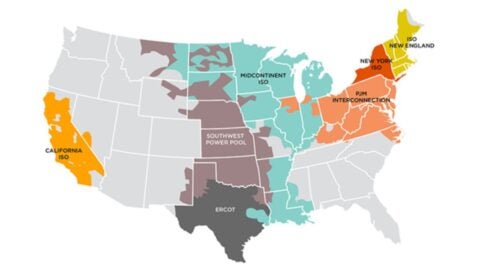No, Climate Legislation’s Not Dead
Last week, we called out Bradford Plumer, Assistant Editor at The New Republic, for saying that he thought there is a “real case” for “waiting until later this year or early next year on cap and trade.”
We had two points:
- Once you start saying, “Why rush this?” it starts to become a self-fulfilling prophecy.
- There’s been ample time to debate global warming legislation — after all, we’ve known for a generation that this is a problem we’ll have to solve, and the first cap and trade bill was introduced in the Senate in 2003.
So, we are pleased to read today that Mr Plumer has clarified his point and now says “cap on carbon emissions can still pass this year.”
Not only can a bill pass this year, it is absolutely critical that Congress seize this political opportunity to act. Here are three of many reasons why:
- The longer we delay action, the more costly it will be to solve this crisis.
- Scientists are warning that the worst case global warming scenarios are coming true.
- Without U.S. action, it is unclear how successful international climate negotiations will be this December.
With strong leadership from the White House and key Congressional leaders, combined with constant grassroots pressure, we can pass a bill that will stop global warming and unleash a green energy revolution to put Americans back to work and get the U.S. economy back on track.
Not only can we, but we must.













3 Comments
Sorry, but this is a misreading. I’ve said all along that a cap-and-trade bill *can* technically pass this year (even if it’s not going in the budget reconciliation bill, a point that’s caused much confusion recently), but also that it’ll be very difficult to overcome a Senate filibuster, and the best chance to finally get a strong bill passed might actually come next year. Yes, delay is bad and ideally a climate bill would pass tomorrow, but “should” and “can” are very different things, and that’s my sense of the political reality.
(Incidentally, Joe Romm of Climate Progress has argued along similar lines–don’t tell me you think he underestimates the seriousness of the situation, too.)
Hi Bradford — thanks for your comments. Our original post focused on your video blog entry last week in which you said:
“If anything, there is a case to be made that Congress is kind of rushing on the whole cap and trade legislation. Henry Waxman has said that he wants a bill out by Memorial Day. Barbara Boxer says she wants a bill out of the Senate by a similar time…
“I think there’s a real case to be made for splitting this up and waiting until later this year or early next year on cap and trade until Obama can really focus his full attention on it and do what’s possible in the meantime.”
Our post last week focused on these points, which sounded like you were advocating slowing down Congressional action and waiting until some point down the road to go for a climate bill.
We think it’s very important to keep the focus on moving a strong bill as soon as possible for the reasons we spelled out in our posts. It will be hard, no question. But, political momentum squandered isn’t easily regained.
We appreciate your clarification that you are not advocating slowing down action.
Fair enough, I could’ve been clearer in the video, but I do think “later this year or early next year,” as I said in the video, sounds like a likely–ambitious, even–time frame for getting cap-and-trade passed into law, with other items like the federal RPS and electric-grid bill getting finished beforehand. (That TNR video was mostly about the ongoing discussions in Congress over whether to fold all of these things into one gigantic bill or pass them separately.)
Anyway, I thought this was a very commonly shared expectation. Mostly I was surprised to see that reiterating this got me lumped in with Heritage and Michael Steele!
Best,
Brad